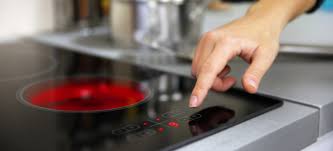Ensuring Safety: Essential Regulations to Check Before Purchasing Home Appliances
Home appliances are valuable assets that enhance our daily living experience. However, ensuring their safety is paramount to protect both our homes and loved ones. In this blog, we will explore the essential safety regulations to consider before purchasing home appliances. Understanding these regulations will empower you to make informed choices, ensuring that the appliances you bring into your home adhere to the highest safety standards.
Certification and Compliance Marks
Look for safety certification marks from reputable organizations such as Underwriters Laboratories (UL), Canadian Standards Association (CSA), or European Conformity (CE). These marks indicate that the appliance has undergone rigorous testing and meets safety and performance standards. Be cautious of appliances lacking these certifications, as they may not meet required safety guidelines.
Electrical Safety and UL Listing
For electrical appliances, check for the UL Listing, a safety certification from Underwriters Laboratories. This ensures the appliance meets stringent electrical safety standards. Inspect the appliance’s power cord for any damage or exposed wires, and ensure it has a proper grounding plug for added safety.
Energy Efficiency and Environmental Standards
Consider the appliance’s energy efficiency rating and compliance with environmental standards, such as Energy Star or EPEAT. Energy-efficient appliances not only save on utility bills but also reduce environmental impact.
Safety Features and Child Locks
Safety features like automatic shut-off and child locks are vital for appliances with potential risks, such as ovens, stoves, and irons. These features prevent accidents and keep children safe from harm.
Gas Appliance Safety
For gas appliances, ensure they have proper ventilation and are installed by a licensed professional. Check for safety features like a flame failure device on gas stoves, which automatically cuts off gas supply if the flame extinguishes.
Overheat Protection
Look for appliances with overheat protection mechanisms. Overheating can lead to safety hazards and damage to the appliance. Appliances with thermal cutoff switches automatically shut off if the internal temperature exceeds safe levels.
Automatic Timer and Delay Start
Appliances with automatic timers and delay start options offer added safety and convenience. Delayed start times can help prevent overheating, while automatic timers switch off appliances when not in use, saving energy and reducing risks.
Proper Installation and Maintenance
Proper installation and regular maintenance are crucial for appliance safety. Follow the manufacturer’s installation guidelines, and schedule routine maintenance to address any potential issues and ensure optimal performance.
Prioritizing safety when purchasing home appliances is of utmost importance for the well-being of your home and family. By considering safety certifications, electrical compliance, energy efficiency, and child lock features, you can confidently invest in appliances that adhere to stringent safety standards. Regularly inspecting and maintaining your appliances ensures they continue to operate safely and efficiently. Remember, a safety-conscious approach to appliance shopping provides peace of mind and a secure home environment for everyone.


